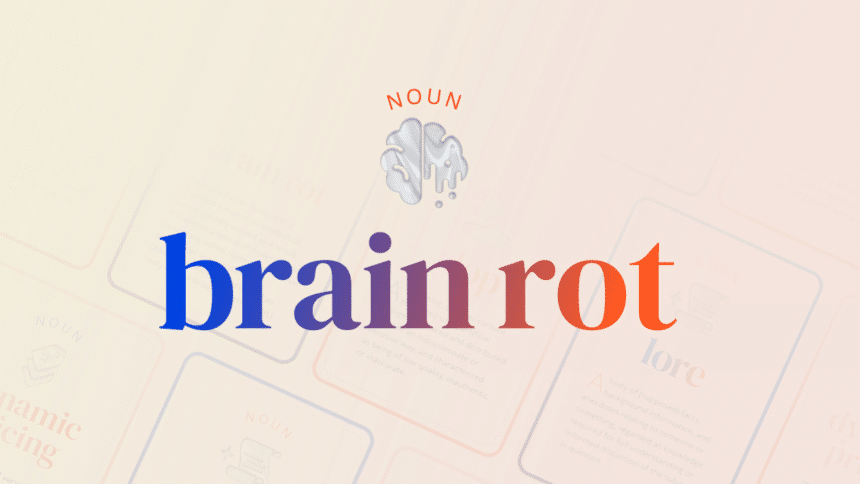If you’re having a hard time explaining the exhaustion or numbness you feel after mindlessly scrolling on your phone, Oxford University Press’ Word of the Year – “brain rot” – might be what you’re looking for.
“Brain rot” is defined by Oxford as “the supposed deterioration of a person’s mental or intellectual state, especially viewed as the result of overconsumption of material (now particularly online content) considered to be trivial or unchallenging.”

Oxford settled on the graphic slang term after a comprehensive language data analysis, worldwide vote, and public discussion, noting the phrase has used 230% more than in 2023. The dictionary authority chooses a word or expression that “reflects a defining theme from the past 12 months.”
While many who don’t frequent social media may assume the phrase is an odd, contemporary phenomenon, the first recorded use of “brain rot” was in Henry David Thoreau’s 1854 memoir Walden.
“‘Brain rot’ speaks to one of the perceived dangers of virtual life, and how we are using our free time,” President of Oxford Languages Casper Grathwohl said. “It feels like a rightful next chapter in the cultural conversation about humanity and technology. It’s not surprised that so many voters embraced the term, endorsing it as our choice this year.”
The term’s increased frequency was particularly found on social media, a term typically used to capture “concerns about the impact of consuming excessive amounts of low-quality online content.”
It follows a trend of social media-centric language that seemingly began in 2009, when “unfriend” was Oxford’s word of the year. Previously recognized words like “rizz” in 2023 and “goblin mode” in 2022 highlight the pronounced effect that internet culture has had on the modern lexicon.
“Looking back at the Oxford Word of the Year over the past two decades, you can see society’s growing preoccupation with how our virtual lives are evolving, the way internet culture is permeating so much of who we are and what we talk about,” Grathwohl concluded. “Last year’s winning word, ‘rizz,’ was an interesting example of how language is increasingly formed, shaped, and shared within online communities.”







